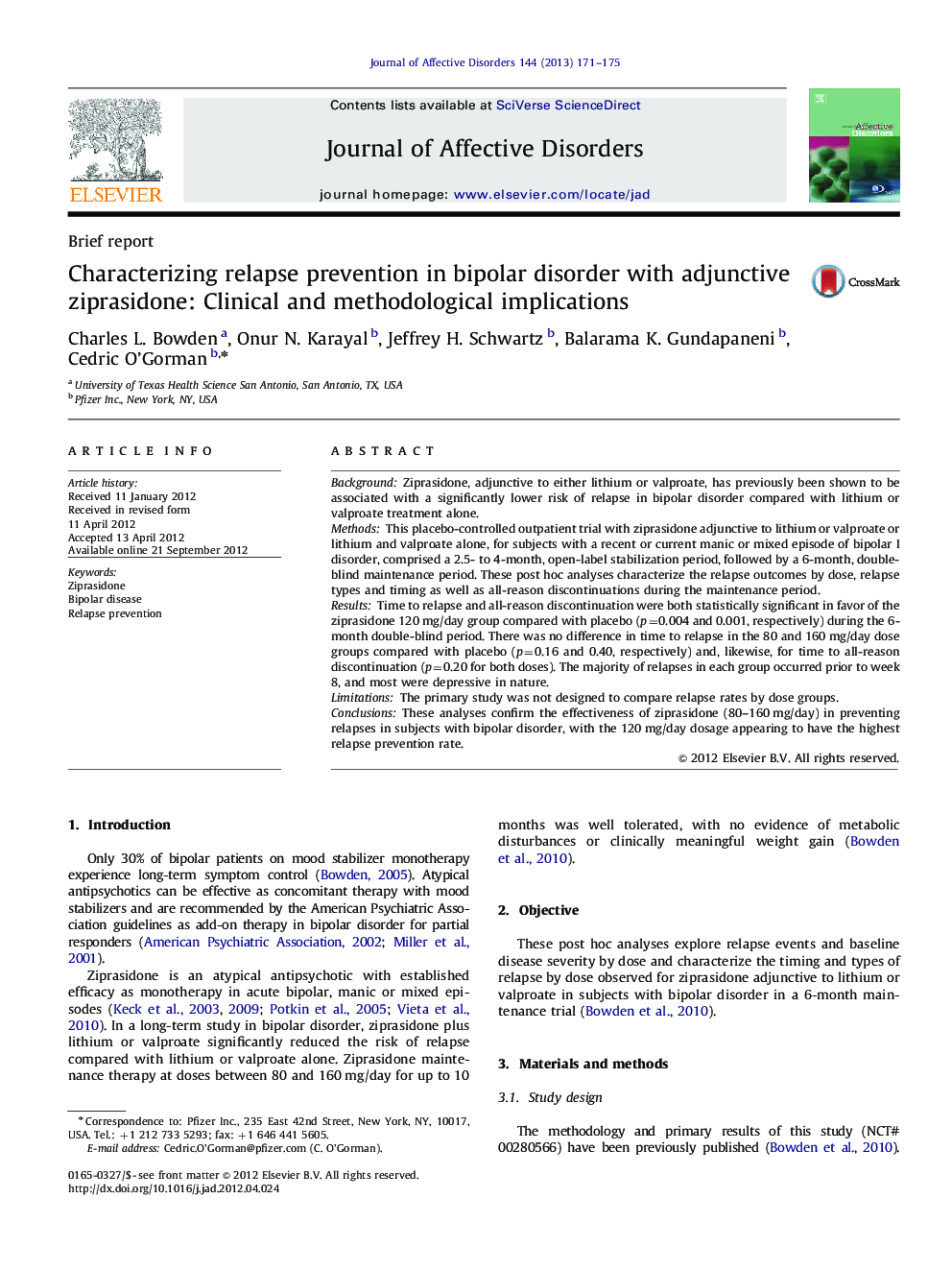| Article ID | Journal | Published Year | Pages | File Type |
|---|---|---|---|---|
| 6234936 | Journal of Affective Disorders | 2013 | 5 Pages |
BackgroundZiprasidone, adjunctive to either lithium or valproate, has previously been shown to be associated with a significantly lower risk of relapse in bipolar disorder compared with lithium or valproate treatment alone.MethodsThis placebo-controlled outpatient trial with ziprasidone adjunctive to lithium or valproate or lithium and valproate alone, for subjects with a recent or current manic or mixed episode of bipolar I disorder, comprised a 2.5- to 4-month, open-label stabilization period, followed by a 6-month, double-blind maintenance period. These post hoc analyses characterize the relapse outcomes by dose, relapse types and timing as well as all-reason discontinuations during the maintenance period.ResultsTime to relapse and all-reason discontinuation were both statistically significant in favor of the ziprasidone 120Â mg/day group compared with placebo (p=0.004 and 0.001, respectively) during the 6-month double-blind period. There was no difference in time to relapse in the 80 and 160Â mg/day dose groups compared with placebo (p=0.16 and 0.40, respectively) and, likewise, for time to all-reason discontinuation (p=0.20 for both doses). The majority of relapses in each group occurred prior to week 8, and most were depressive in nature.LimitationsThe primary study was not designed to compare relapse rates by dose groups.ConclusionsThese analyses confirm the effectiveness of ziprasidone (80-160Â mg/day) in preventing relapses in subjects with bipolar disorder, with the 120Â mg/day dosage appearing to have the highest relapse prevention rate.
